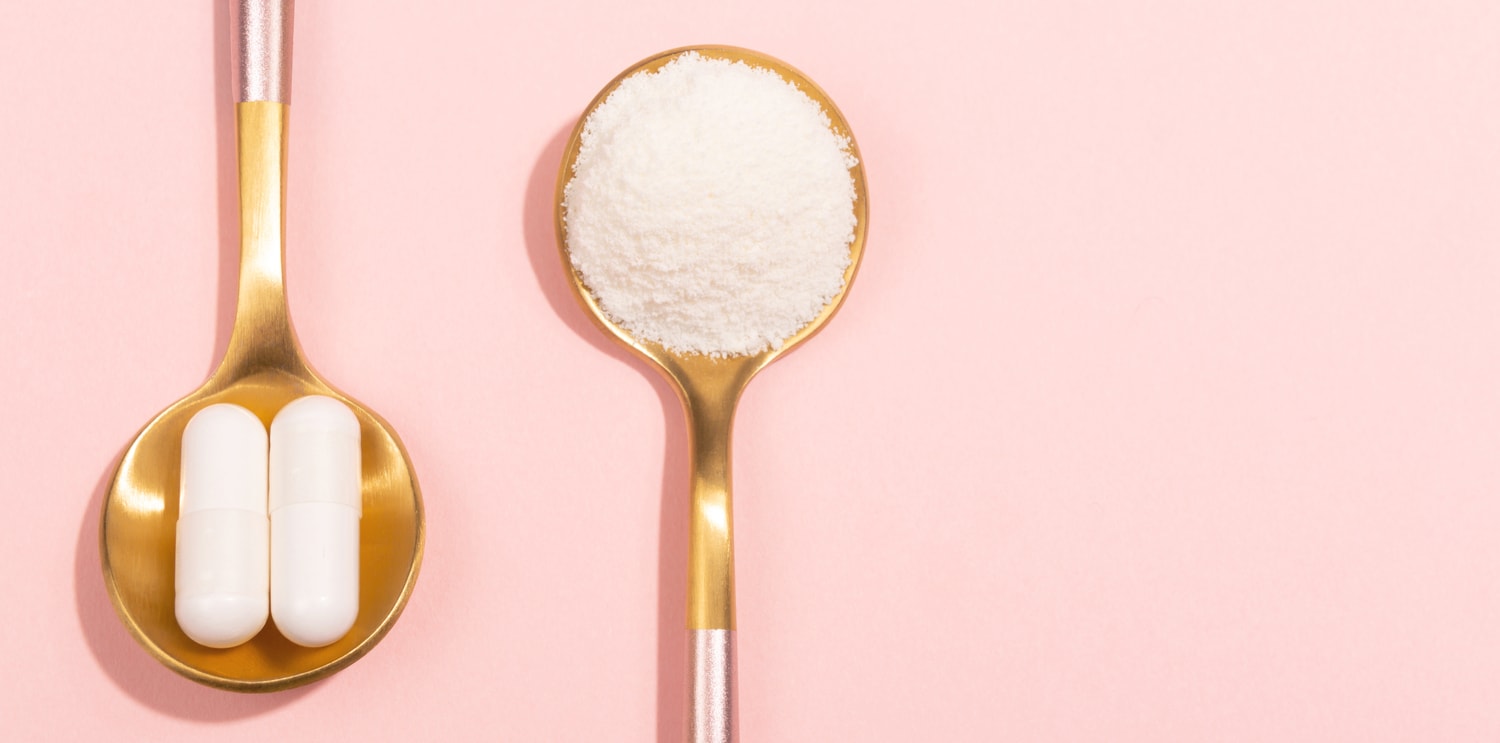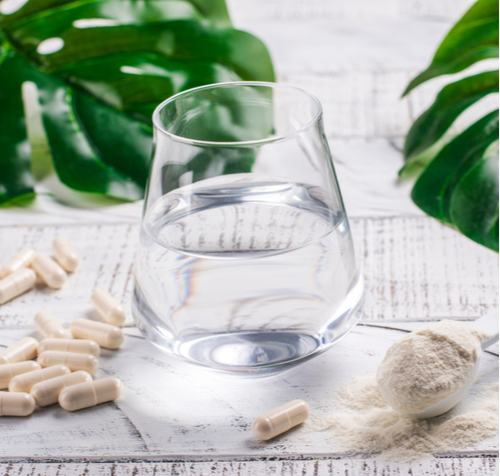Youth Protein: where it comes from and why we lose it?
It is popular to think that collagen is next door to a magic substance delivering youthful power to your skin and needing a continual replenishment and facilitation using various cosmetic products. While in fact, collagen is a quite normal, regular protein produced by your body throughout your lifetime and makes up the most in the composition of your hair, nails and skin along with cartilage, tissues and even bones. Why do we need collagen and can we boost its production naturally? Let’s try to figure it out.

What do we actually deal with?
Collagen is a protein fundamental for all the building processes inside your body and body of the rest of mammals on our planet. Plants, fungi, bacteria, protozoa and viruses do not feature this powerful building component. The name of the protein comes from the Greek word kolla – “glue”, and that is for a good reason since many experts compare the main function of collagen with glue. Its molecules form long, thin protein fibers, known as fibrils. They serve to hold tissue cells together and bind our body into a single flawless machine.
In mammals, collagen is the most abundant of proteins, accounting for 25% to 45% of all the “building materials” of our cells. Today there are 28 types of collagen known, with three types recognized in the human body: type I collagen makes up 90% of the structure of hair, nails and skin, type II collagen forms the basis of cartilage tissue, and type III collagen is the fibrous proteins that make up the bones, cartilage, dentin, tendons and connective tissues. Besides, collagen forms the walls of blood vessels – arteries, veins and capillaries.
Why do we crave it?
As we already mentioned, collagen is a magic glue in our organism, binding everything together so that we could move and develop unhindered. Our skin, hair, cartilage, bones and vessels just can not exist without this protein! It’s worth pointing out that collagen incorporates three important amino acids, — glycine, hydroxyproline and proline. Each of them is involved in vital processes in the body: hormone synthesis, digestion, sleep regulation, and many more. Finally, in certain ways, the health of the cardiovascular system depends on collagen. If one experiences a lack of this protein, the walls of the blood vessels become stiff and rigid, which hampers blood supply to organs.
At what age does collagen production decrease?
As we are born and all the way to 20 years of age, we have the collagen level growing in our bodies reaching its peak by the time we are about 25. For a while, we are balancing at the peak of production, but very soon it starts subsiding, although at first, rather slowly. At the stretch of life between 25 to about 50 years old, we lose about 1% of collagen per year.
A real “collagen hole” for women occurs during menopause (on average, women go through menopause at the age of 51-53). During the first five years after this stage, we lose collagen particularly quickly, and by the age of 60-70, both men and women experience a pronounced deficiency of this protein.
What causes the collagen loss?
It’s not just the natural aging process that affects collagen production. The synthesis of these proteins depends on amino acids, which, in turn, are influenced by a number of processes. It basically means that you can start experiencing premature aging at almost any age. Here are the main reasons why collagen levels may decrease:
- Unbalanced diet, as well as the consumption of foods high in sugar,
- Bad habits,
- Prolonged exposure to UV rays,
- Lack of sleep,
- Hormonal disruptions
- Frequent stressful conditions, distress,
- Lack of physical activity.
Can we boost collagen in our organism?
Collagen that our body produces is called endogenous. And, the good news is, you can help your body produce more healthy protein. One of the effective ways is to normalize your sleep since good sleep replenishes the loss of collagen. This conclusion was made by the researches of The University of Manchester. For more detail about the study called “Beauty Sleep could be real”, please read here.
It is also important to stay physically active, do sports and spend more free time in the fresh air because regular exercise stimulates collagen production.
Finally, it is important to have a balanced diet: collagen is a protein, and we can get it from food. And there are also foods that stimulate the production of this protein.
Foods that can pump up your collagen level

Lean meat
The protein in meat is made up of essential amino acids the human body can’t generate on its own. By the way, beef and chicken also contain non-essential amino acids, some of which make up collagen. Eating meat provides your body with additional stores of the amino acids it needs to produce collagen.
Green peas
It is an excellent source of plant-based protein that can be especially important for vegetarians. The principle is the same: when a protein enters the body, it is split into amino acids, which are then “reassembled” into collagen.
Sweet pepper
Vitamin C is crucial for collagen production, and bright crunchy bell peppers are a perfect source of vitamin C.
Carrots
Vitamin A which is found in carrots is a useful substance without which collagen production is impossible. Carrots are abundant in vitamin C, but remember that it belongs to fat-soluble vitamins, so add a little vegetable oil to carrots, or sourcream or eat it with nuts or hummus.
Spinach
Spinach is a real jackpot if you are looking for the ultimate vitamin and collagen booster. If your meals regularly feature spinach, you successfully deliver Vitamin C, Vitamin A, and Zinc to your organism, with the latter being very important for the process of collagen production. Don’t like spinach? Eat cabbage instead as it is also very rich in collagen-promoting substances.
Chickpeas
In addition to vitamins A and C, zinc and protein, chickpeas are rich in thiamine, a vitamin that helps in the breakdown of protein into amino acids.
The takeaway
Collagen is an essential protein, indispensable for the effective functioning of our body systems. Bones, skin, tendons and even blood vessels all exist thanks to collagen. Although the unhealthy diet and lack of sleep have an adverse effect, we can slow down this process a little. Sleep, proper nutrition, physical activity and taking the appropriate vitamins can maintain our “youth protein” balance, helping us stay healthy, active and beautiful.
Learn more about Joints, SUPPLEMENT+
What to learn more? Read here:





